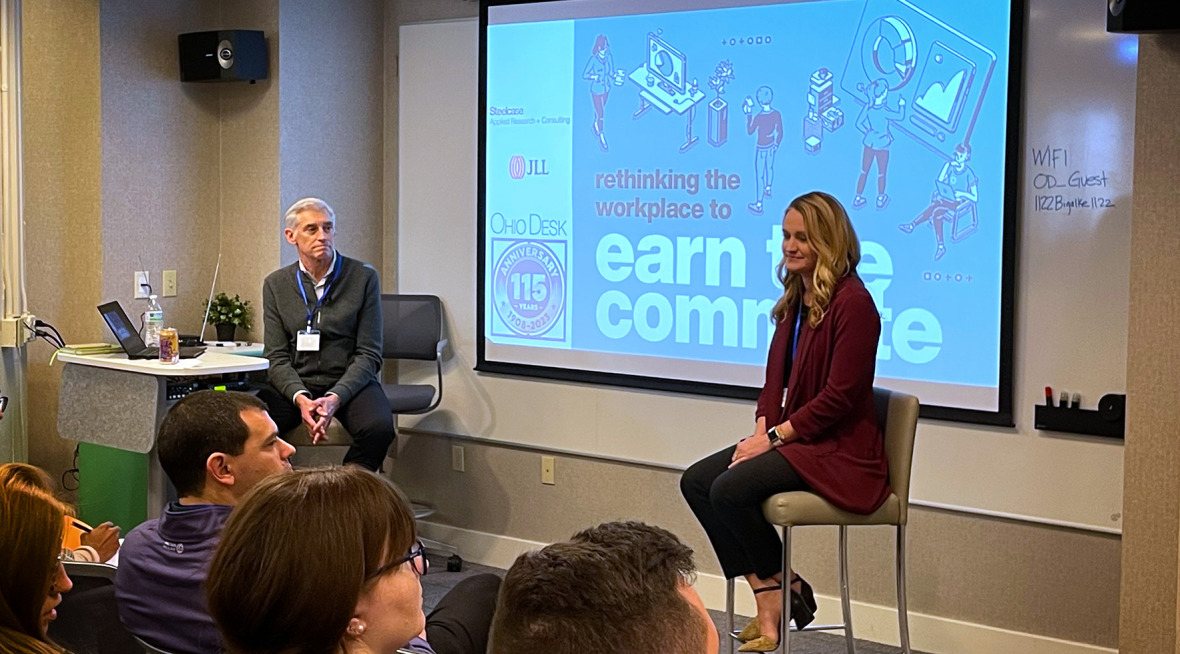In early November, Ohio Desk, in conjunction with our partner, Steelcase welcomed over 100 customers, real estate and architectural and design professionals into our newly renovated spaces for a panel discussion on workers expectations and the latest trends in how workplaces are being designed to earn the commute.
Our panelists Rich Benoit, Senior Consultant with Steelcase’s Applied Research + Technology team and Jessica Glyde, VP and Senior Project Manager at JLL Design Solutions engaged our audience with a series of polling questions. These questions lead to some energizing audience participation as we debated such topics as return to the office policies, generations in the workplace, and important issues on leaders minds such as sustainability, diversity equity and inclusion and wellbeing.
In terms of return to the office, most respondents for the poll indicated that they either had individual choice as to balance home and office work or they had their company decide for them. Very few indicated that they were expected to be in the office every day or that they had absolutely no guidelines. Rich commented that the most successful return to office initiatives have some level of policy and expectations; but that at the same time, the difference in actual attendance increases only slightly if employees are asked to be in the office two verses three days per week. Jessica Glyde works with customers on a national basis and indicated that this is consistent with what she is seeing across the nation.
In both sessions, the conversation turned to what amenities companies were providing to encourage return to the office. As companies are divesting of real estate, some of that funding is going to increase amenities for employees who are coming to the office. Jessica sites a popular ride share app company who is providing breakfast, lunch and “to-go” dinner at no cost to employees. While this does seem to be an effective tactic for many organizations, Rich cautioned against the dreaded “badge coffee” – employees simply badging in to get a free coffee and then going home to resume their work.
Our next question posed was around increased importance of engagement, sustainability, DEI initiatives and wellbeing since the pandemic. Not surprisingly, wellbeing topped the list, however the conversation took a much broader context with discussions of employees bringing their whole self to work and how we as employers support them with the workplace. DEI initiatives were also top of everyone’s mind, including how the workspace can be inclusive in terms of furniture, technology and even food service.
Finally, we had a spirited conversation around the generations in the workplace. Many in the audience acknowledged the surprisingly strong desire for Gen Z employees to make the commute to the office. Research around what motivates Gen Z included career development and meaningful work.
We thank our panelists for a spirited conversation and look forward to engaging in the future.


TommyAlund
hi